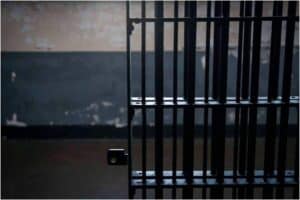The government should build its own infrastructure, hire its own security guards, cleaners and maintenance people, and buy its own supplies directly.

A radical friend and colleague of mine believes corruption would come to an abrupt end if perpetrators were lined up and shot, in public, to deter any thoughts of committing graft.
I totally agree with him but this imaginary idea will forever be confined to his imaginary world because of our noble Constitution.
In my friend’s brutal solution to graft, the accused are fairly tried and then, if found guilty beyond reasonable doubt, face the firing squad.
A great idea, I concur, because corruption not only robs people of their right to quality of life and services, but corruption also raises the costs of doing business, stunts the dynamism and competitiveness needed and has a negative impact on growth and jobs.
Corruption creates mafia states like we have seen right here on our shores, where wedding guests ended up landing on an Air Force base, Cabinet members appointed and fired by private persons, as well as the capturing of state-owned entities in a grand looting spree.
Whistleblowers, the diligent and the honest, are killed because of graft.
Poor communities are left with substandard infrastructure, many a time with fatal consequences, as the greedy cut corners and appoint useless contractors for kickbacks.
African scholar and anticorruption activist Patrick Lumumba laments that we live in a country where young women who have reached puberty “cannot afford sanitary pads, but our men and women in public offices have iPads which they do not even know how to use”.
Corruption is so destructive and causes so much misery and pain that the idea of public execution for the corrupt can be excused because few, if any, would be caught with their hands in the cookie jar.
I would make the executions even more brutal by swapping the firing squad with vicious dogs to tear the corrupt apart like rag dolls, or let the condemned be pecked by ducks for a slower and more excruciating demise.
Government figures released in 2017 put the cost of corruption at around R27 billion annually, as well as the loss of 76,000 jobs that would otherwise have been created.
This is the money that is supposed to give people better public servants, build more quality houses, roads and other public amenities and provide quality basic services and education.
We would not have so much crime and other social ills if this money, lost every year, was channelled to where it is needed most.
What could practically bring down corruption dramatically is the abolishment of the tender system and the adoption of a system where all state services and responsibilities are sourced in-house.
We need to cut out the middleman and let the government build its own infrastructure, hire its own security guards, cleaners and maintenance people and buy its own supplies directly.
In this tenderless system, police and other officials would not be tempted to take bribes because they would be sufficiently paid and dedicated and the kickback well would dry up for crooked politicians.
Let us cut out the middleman, tighten internal controls and let the corrupt starve to death, instead of executing them.

Sipho Mabena.
For more news your way, download The Citizen’s app for iOS and Android.






